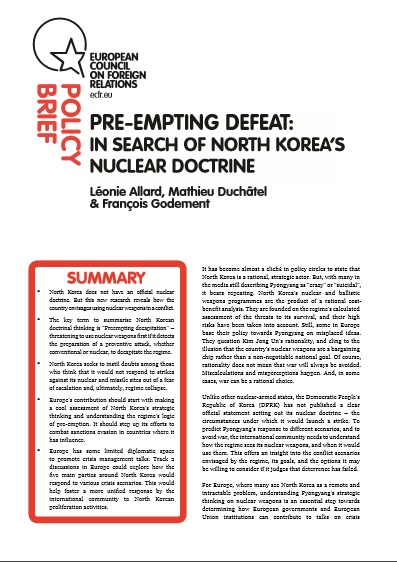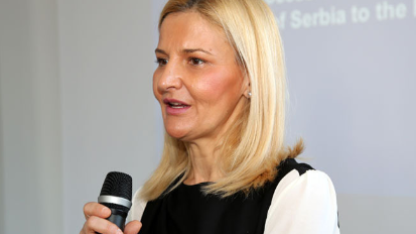Ireland: The final barrier to a December Brexit deal
Theresa May has to satisfy interests in Dublin, Belfast and Brussels on Northern Ireland’s future status if Brexit talks are to progress this year
Theresa May has to satisfy interests in Dublin, Belfast and Brussels on Northern Ireland’s future status if Brexit talks are to progress this year
The biggest threat to the European project is not the “illiberal” saboteurs on the periphery of the EU, but the deep divide within member states, including bastions of liberalism such as France and Germany
Mark Leonard speaks with Shahin Vallée, former Economic Advisor to the President of the European Council and to Emmanuel Macron when he was French Economy Minister
Madrid is inadvertently equating Catalonia and Kosovo and, by doing so, revealing itself to be unable to distinguish between legitimate aspirations for self-rule and destabilizing separatism
ECFR’s director Mark Leonard discusses the launch of PESCO, the latest collective European defence initiative with ECFR Senior Policy Fellow Nick Witney and Policy Fellow,…
ECFR’s director Mark Leonard discusses the consequences of the German political crisis for Germany and for Europe with ECFR's Berlin office director, Josef Janning, and…

Pyongyang’s is prepared to carry out a pre-emptive nuclear strike against both military and civilian targets if it detects an imminent attack
The standstill in German governance will likely amplify political fragmentation in the EU.

Podium discussion about the accession of the Western Balkans to the EU
Condemnation and a few more EU aid payments will not fix Poland’s resurgent xenophobia